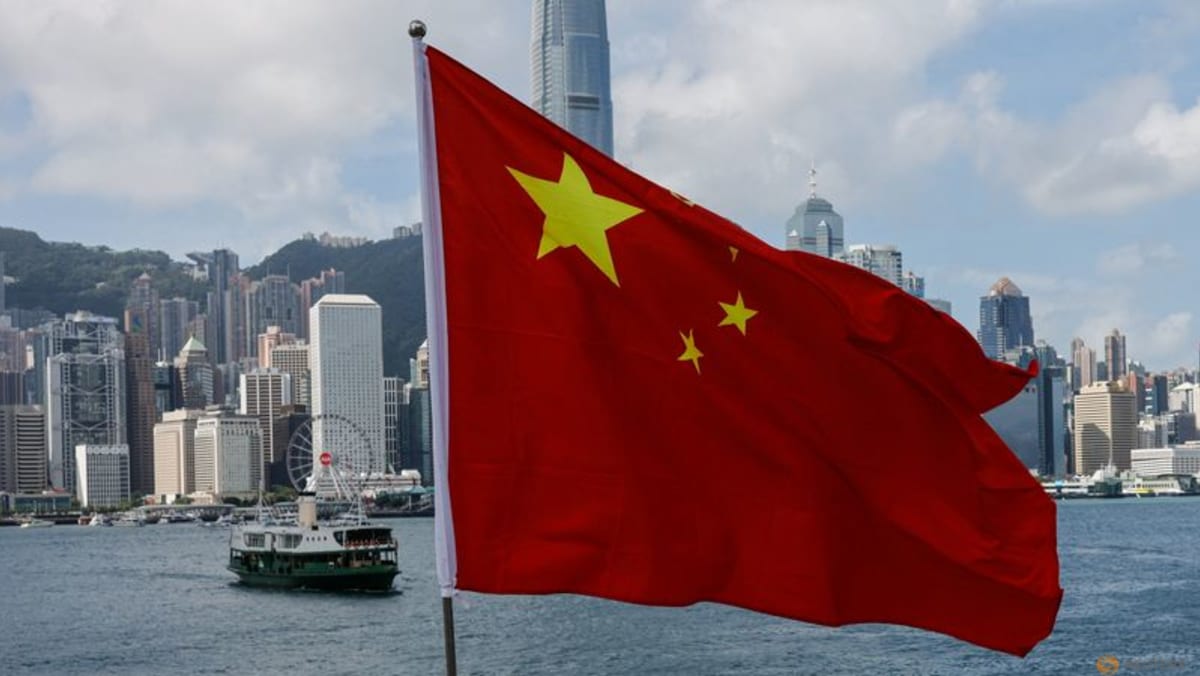China keeps up campaign to pressure critics abroad despite Western backlash
WASHINGTON: China is facing a growing backlash from the United States and other Western governments over its controversial efforts to pressure dissidents and their advocates abroad, but Beijing has appeared undeterred.
Authorities in the US, Canada, Britain and elsewhere recently have taken a hard line, including with expulsions, indictments, arrests and probes, against Chinese operations they say are aimed at intimidating critics and pursuing officials accused of corruption living abroad.
Among Beijing’s alleged tactics are threats of harm, online harassment and clandestine operations on foreign soil to hunt pro-democracy activists.
China has pushed back with staunch denials and retaliatory moves while apparently shrugging off any damage to diplomatic relations and betting that trade ties can weather the storm – a signal, experts said, it has no intention of backing off.
“An increasingly assertive Beijing is being more aggressive with its overseas influence operations,” said Isaac Stone Fish, founder and CEO of Strategy Risks, a firm that helps companies navigate political risk in China.
The latest dispute has centred on Canada’s expulsion of a Chinese diplomat on Monday over allegations that he attempted to intimidate a Canadian lawmaker critical of China’s human rights record. Beijing responded within hours by ordering a Canadian diplomat in Shanghai to leave over what it called Ottawa’s “unreasonable actions”.
CRACKDOWN ON “POLICE STATIONS”
This comes as Canada, the US and several European countries recently have cracked down on what they see as clandestine Chinese police stations overseas to target dissidents and those Beijing accuses of “financial crimes”, including coercing some Chinese emigrants to return home.
China’s government has disputed the existence of such facilities but has said there are volunteer-run centre outside China that help Chinese citizens renew documents and offer other services.
But the US believes such explanations lack credibility, according to a person in Washington familiar with the matter, saying President Joe Biden’s administration would be undeterred in efforts to root out Chinese pressure campaigns.
The US Justice Department has been ramping up probes into what it calls “transnational repression” by US adversaries such as China, in part to raise awareness among potential victims.
And shortly after authorities arrested two people on charges of links to a Chinese “secret police station” in New York last month, a US official said the United States was engaged in an “extensive effort” with international partners to counter Chinese influence operations.
Many of the actions China takes abroad – from the “police stations” to efforts to silence critics – stem from President Xi Jinping’s heavy focus on domestic security, including an ongoing campaign to stamp out corruption in the Communist Party and worries about unrest in the country’s restive Xinjiang region.
But those steps by Beijing are increasing tensions when relations between the US and China have sunk to the lowest point in decades over issues ranging from Taiwan to technology.
“Some of this is China feeling that it needs to and can act extra-territorially to address what it believes are threats to its domestic stability,” said Jon Bateman, a senior fellow at the Carnegie Endowment for International Peace in Washington. “But they’re doing it in a very aggressive way that flouts international norms.”
IMPACT ON TRADE TIES
The Chinese embassy in Washington did not immediately respond to a request for comment.
Canada’s expulsion this week of Chinese diplomat Zhao Wei came after an intelligence report accused him of trying to target a Canadian lawmaker critical of China’s treatment of its Uyghur Muslim minority.
Diplomatic tensions between Beijing and Ottawa have been running high since Canada’s detention of Huawei Technologies executive Meng Wanzhou in 2018 and Beijing’s subsequent arrest of two Canadians on spying charges that Canada steadfastly denied. All three were freed in 2021.
Sarah Kreps, director of the Tech Policy Institute at Cornell University, said one reason China continues to push its influence operations is that it believes the US is unlikely to retaliate in a way that would risk a more volatile relationship with China.
Further, China appears to have calculated that, as the world’s second-biggest economy, it can weather any global reputation damage and avoid any major impact to its trade ties for activities it perceives as in its national interests.
Despite the latest diplomatic spat between China and Canada, “I don’t think that you can say that these particular actions are harming the business relationship,” said Sarah Kutulakos, the executive director of the Canada China Business Council.
Last year, for instance, Beijing lifted a three-year ban on imports of canola, Canada’s largest crop, restrictions that followed Meng’s arrest. China is also a major importer of Canadian potash and wheat.
But some analysts have said that China’s increasing focus on its own security and intensifying rivalry with the United States threaten to undermine its re-engagement with the world after years of COVID-19 curbs as it tries to send the message it is once again open for business.
For all the latest world News Click Here

